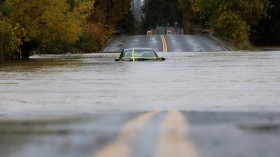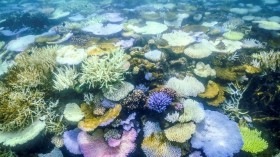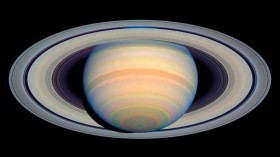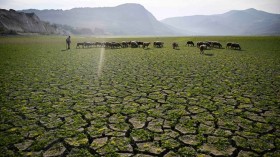The Galápagos land iguana (Conolophus subcristatus) has been revealed to play an important role in dispersing seeds and ensuring the survival of indigenous and introduced plants plant species on Fernandina Island.
Anna Traveset from the Mediterranean Institute for Advanced Studies (CSIC-UIB) is the lead author of the study published in the journal Integrative Zoology where she noted that the isolated geography of ocean islands like the Galápagos results in a marked lack of large mammals that disperse the seeds of many plants by ingesting them. Since these mammals are not to be found on the Galápagos Islands, birds, tortoises, lizards and iguanas carry out this task.
Several native and introduced plants partially rely on the role of animals in pollination and seed dispersal. Once the birds, tortoises, lizards and iguanas ingest the seeds, they could expel them through animal faeces and return the seeds to the soil possibly at a different location on the island.
"We knew that female iguanas on this island cover large distances, around 10 kilometres, and climb up to 1,500 metres of altitude to lay their eggs at the island's volcanic crater," explained Traveset.
The researchers were able to collect 160 iguana faeces samples. They were able to identify 5,705 seeds from 32 plant species. After close examination, it was determined that at least 80% of the seeds were damaged. The remaining seeds that were still viable after passing through the iguana's intestines were planted. It was recorded that 849 seeds from 29 plant species were planted and 4% of these seeds germinated more than 200 days later.
"Considering the local abundance of land iguanas and the large amount of seeds ingested by these animals, even if only a small proportion germinates, they can be considered important for plant dissemination to new areas in this young island," Traveset stated.
According to the study, 63% of the seeds were of native plants and a third of the species were endemic to the Galápagos Islands. Six percent were from introduced species and the remaining 31% could not be identified.
© 2024 NatureWorldNews.com All rights reserved. Do not reproduce without permission.





